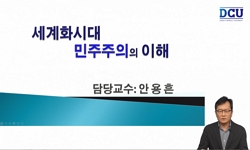이 연구는 민주화 이전 시기 고안된 국가의 민주주의 담론이 이후 어떻게 변형, 유지탈각되었는지 탐구하기 위한 것이었다. 그 결과 권위주의 시기 확정된 민주주의의 이데올로기 담론구성...
http://chineseinput.net/에서 pinyin(병음)방식으로 중국어를 변환할 수 있습니다.
변환된 중국어를 복사하여 사용하시면 됩니다.
- 中文 을 입력하시려면 zhongwen을 입력하시고 space를누르시면됩니다.
- 北京 을 입력하시려면 beijing을 입력하시고 space를 누르시면 됩니다.
https://www.riss.kr/link?id=A105587571
- 저자
- 발행기관
- 학술지명
- 권호사항
-
발행연도
2018
-
작성언어
Korean
- 주제어
-
등재정보
KCI등재
-
자료형태
학술저널
- 발행기관 URL
-
수록면
35-74(40쪽)
- DOI식별코드
- 제공처
- 소장기관
-
0
상세조회 -
0
다운로드
부가정보
국문 초록 (Abstract)
이 연구는 민주화 이전 시기 고안된 국가의 민주주의 담론이 이후 어떻게 변형, 유지탈각되었는지 탐구하기 위한 것이었다. 그 결과 권위주의 시기 확정된 민주주의의 이데올로기 담론구성체는 민주화 이행이라는 담론 외적 환경 변화에 조응해 유지, 변형되는 경로의존성을 확인할 수 있었다. 즉 권위주의 시기 안보, 안정, 발전에 대립되는 혼란의 다른 이름이었던 민주주의의 의미는 민주화 이행기에 이르러 기존 이데올로기 지형에 긍정적 형태로 편입되는 양상으로 변화했다. 담론 내적 지형에서 큰 틀의 연속성을 보여주는 이 같은 결과는 민주화 이후 시기에서 마저 민주화 이전 구조화된 국가의 담론정치의 한계선을 넘지 못했음을 명시적으로 나타내는 것이다. 그 원인은 이행기 정의의 관점에서 볼 때 역사적 이데올로기적으로 권위주의 정권의 반대급부에서 그 유산을 극복하고자 했던 행위자로서의 국가의 의지에도 불구하고, 그들이 지닌 본래의 이념적 정치적 정향의 한계를 극복하지 못한 데서 기인한 측면이 크다. 이는 결국 이행기 정의의 관점에서 볼 때 우리 사회의 담론 지형에서 권위주의의 극복은 안정, 발전, 안보 이데올로기 담론구성체를 넘어설 때 비로소 완성될 수 있음을 보여준다.
다국어 초록 (Multilingual Abstract)
The purpose of this study is to explore how the democratic discourse of the post-transition democratic regimes has been transformed since the period of democratization. We argue that the ideological-discursive formation of democracy determined during ...
The purpose of this study is to explore how the democratic discourse of the post-transition democratic regimes has been transformed since the period of democratization. We argue that the ideological-discursive formation of democracy determined during the authoritarian period showed a path dependence which was maintained and transformed according to the environmental changes of democratization. In other words, democracy, which meant confusion during the authoritarian period, came to be accepted positively during the transition period, and changed into a way that was positively mixed with the existing ideological terrain. From the point of view of this historic transitional definition, the reason is due to their inherent ideological, political limitations in spite of the will of the state, advocating anti-authoritarian regime to overcome its heritage. In conclusion, overcoming authoritarianism may be possible when we go over the ideological mechanism of ‘stability, security, development.’
목차 (Table of Contents)
- 요약
- Ⅰ. 문제제기
- Ⅱ. 이론적 자원과 연구방법
- Ⅲ. 민주화 이전 국가의 민주주의 담론
- Ⅳ. 민주화 이행기 국가의 민주주의 담론
- 요약
- Ⅰ. 문제제기
- Ⅱ. 이론적 자원과 연구방법
- Ⅲ. 민주화 이전 국가의 민주주의 담론
- Ⅳ. 민주화 이행기 국가의 민주주의 담론
- Ⅴ. 민주화 이후 국가의 민주주의 담론
- Ⅵ. 결론
- 참고문헌
- Abstract
동일학술지(권/호) 다른 논문
-
- 경희대학교 인류사회재건연구원
- 최천운(Cheonwoon Choi)
- 2018
- KCI등재
-
한국 부채경제의 구조변동: ‘기업부채’에서 ‘가계부채’로
- 경희대학교 인류사회재건연구원
- 박찬종(Chan-Jong Park)
- 2018
- KCI등재
-
- 경희대학교 인류사회재건연구원
- 김연재(Yon Jae Kim)
- 2018
- KCI등재
-
송시열의 ‘춘추필법’ 실행 양상: 비문(碑文)과 전(傳)을 중심으로
- 경희대학교 인류사회재건연구원
- 이송희(Song-hee Lee)
- 2018
- KCI등재





 RISS
RISS DBpia
DBpia







